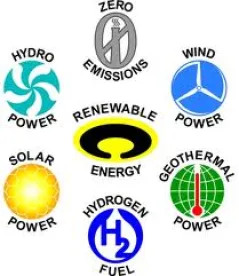Legislation to extend the Incentive Tax Credit (ITC) to energy storage was re-introduced yesterday by Senators Martin Heinrich of New Mexico and Cory Gardner of Colorado, along with 10 cosponsors. Currently, the ITC only applies to renewable forms of energy production, but does not apply to any form of storage. As a result, when renewable energy is not being produced, utility companies are forced to rely on traditional forms of energy production to meet their customers’ energy needs. Energy storage allows the energy that is produced via a renewable source, such as solar and wind, to be stored and released later when production slows.
Legislation of this nature has been introduced before, but this bill is gaining momentum according to the Solar Energy Industries Association (SEIA). Earlier this week, Representative Mike Doyle of Pennsylvania introduced a companion bill to the House. In addition to these bills, more than 100 members of the House signed a letter addressed to the Chairman of the Ways and Means Committee, seeking to “encourage the Committee to consider allowing for the transferability of existing tax credits to other project partners” and to “clarify the tax code for energy storage technologies, which are critical for the continued deployment and expansion of intermittent, clean energy technologies, such as wind and solar, and help modernizing the electric grid to make it more efficient and resilient.”
The legislation is written to extend the ITC to all energy storage systems, regardless of the source of the generation. The bill will help incentivize investment in energy storage of all sizes, from commercial and utility-scale operations, to residential storage systems designed to support rooftop solar. This is the major distinction between this bill and prior legislation. Residential energy storage systems powered exclusively by on-site solar have been eligible for the ITC since 2018, however, due to regulatory uncertainty, and a lack of clear guidelines regarding grid interconnection, investors have been hesitant to invest. The current proposed legislation extends the ITC to all storage, regardless of energy origin. Experts laud this expansion for the security it will bring investors and its potential to increase investment in storage.
The ITC however, is subject to limitations. The bill is an extension of the present ITC, and thus is subject to the same “ramp-down” as the current program for solar.
| ITC | Year |
| 30% | 2019 |
| 26% | 2020 |
| 22% | 2021 |
| 10% | 2022 and Beyond for Commercial and Utility-Scale Projects |






 />i
/>i
